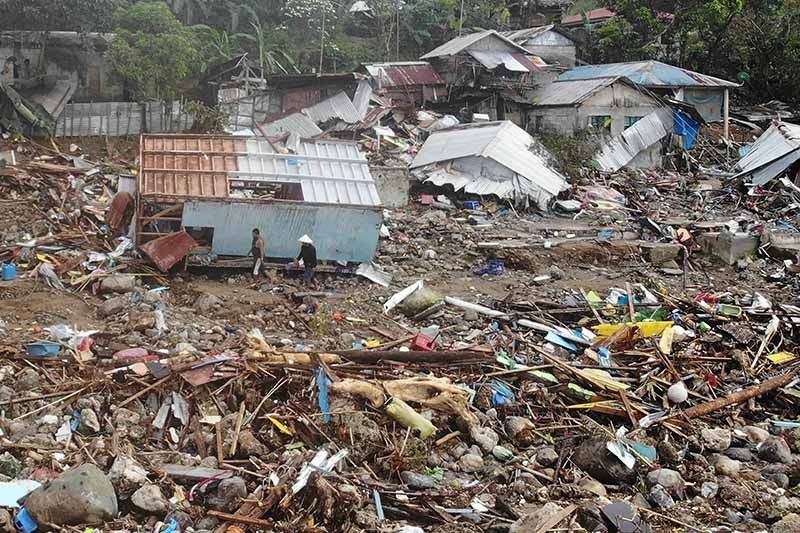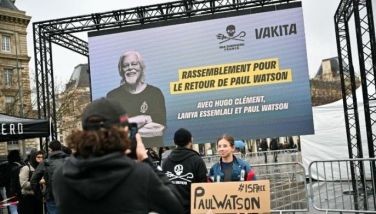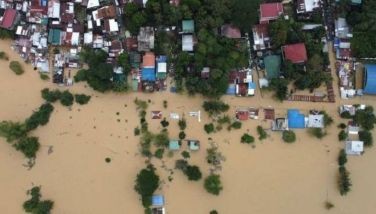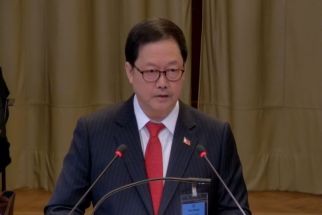Climate crisis left on sidelines of election campaign

MANILA, Philippines — Ferdinand ‘Bongbong’ Marcos Jr., the likely winner in the presidential elections, will have the task of leading Philippines during a crucial period that will determine the future of humanity on an overheated planet.
Science has made it clear: time is running out to ensure a liveable future for the planet, and nations must implement deep and immediate greenhouse gas emissions reductions to cap global warming to 1.5 degrees Celsius. Any rise above this threshold will trigger the worst effects of the climate crisis.
In a nation battered by an average of 20 tropical cyclones each year and threatened by rise in sea levels, climate change did not feature as a major issue on the 90-day campaign trail.
Ruth Lusterio-Rico, a political scientist who specializes in environmental policy, explained that voters’ awareness of the impacts of climate change is quite low despite it being a cross-cutting issue.
"They still cannot connect the climate crisis with their experiences, even with poverty. Thus, those who run for political positions do not pick up the issue," the professor from University of the Philippines Diliman told Philstar.com.
A Harvard Humanitarian research published in 2020 found that 60% of the respondents said they had not heard of and did not feel well informed about climate change. But the study also found that 71% of Filipinos expressed concern that they will be affected by its impacts.
Lusterio-Rico added that election campaigns in the country focus on personalities, not issues.
"In fact, very few candidates run under an environmental-climate agenda."
Unclear adaptation, mitigation plans
The Philippines is one of the countries most vulnerable to the impacts of human-induced climate change, which disproportionately affect the poor.
Candidates vowed to fight poverty and corruption, provide jobs and livelihoods, improve the country's healthcare system, and even unify the nation. But their plans to adapt to and mitigate the impacts of climate change were largely missing from the election campaign.
In a report released days before the May 9 polls, the Commission on Human Rights stressed that individual efforts to tackle climate change will be for naught if those in power are blind to the plight of the planet.
Greenpeace campaigner Virginia Benosa-Llorin observed that the usual answers of candidates in debates and interviews were focused on energy development and disaster response.
"Generally speaking, there have been no clear and definite plans to address climate change mitigation and adaptation concerns among the candidates," she said.
Nearly all candidates mentioned the need to pursue clean and cheap renewable energy sources.
Marcos and his closest rival Vice President Leni Robredo said they planned to harness geothermal, hydropower, wind and solar energy sources. Robredo also emphasized the need to have a clear roadmap to achieve carbon neutrality by 2050.
Throughout the campaign period, labor leader Leody de Guzman was consistent in his stances: pushing for clean energy technologies and rejecting the use of planet-warming fossil fuels. He placed eighth in the presidential race.
"The interest in mitigation is there. In a lot of ways, this reflects the policies of the current administration which also seem to focus more on mitigation," said Jon Bonifacio, national coordinator of Youth Advocates for Climate Action Philippines.
To bring the climate agenda to the fore, Lusterio-Rico said that environmental groups should "make both voters and candidates aware that environment and climate issues are critical at this time" by having champions among government officials in the national and local levels, and strengthening environmental education through informal channels.
Climate change plan
Several climate campaigners and environment advocates backed the tandem of Robredo and his running mate Sen. Francis ‘Kiko’ Pangilinan, saying they offered a "competent, responsive and firm leadership" to combat climate change and address the country’s environmental problems.
The administration tandem of Marcos and Duterte-Carpio clinched the top two jobs in the country by wide margins.
As the likely next president, Marcos will steer the direction of the country’s policy to address climate change.
But for Kalikasan People’s Network for the Environment national coordinator Leon Dulce, another Marcos presidency "bodes a return to the dark ages."
“[Marcos] has no plans whatsoever, and that includes climate action and environmental protection. It will be blind leading the blind under a Marcos presidency,” Dulce said.
Greenpeace’s Benosa-Llorin said the next administration should stop the expansion of fossil gas projects, drop plans for nuclear energy development, and ensure that renewable energy will account for half of the nation’s energy mix.
The presumptive president-elect is backing the inclusion of nuclear energy in the power mix. Marcos also intends to revive the Bataan Nuclear Power Plant—his dictator father’s project that has been mothballed since the 1980s because of safety concerns. Environmentalists call nuclear energy a "false climate solution" that is expensive and dangerous.
Benosa-Llorin also urged the incoming leadership to hold the world’s biggest polluters accountable for human rights violations related to climate change and act on the recommendations of the Commission of Human Rights’ National Inquiry on Climate Change report.
Its recommendations include declaring a climate and environment alert, revisiting the country’s climate commitments, and amending the Climate Change Act and the Disaster Risk Reduction and Management Act.
In an interview with CNN Philippines last week, sociologist Nicole Curato said that whoever wins in the elections is "the person who wil decide who lives and who dies in this country."
"This president will decide our climate policy. This person will decide how we respond to disasters and how we respond to COVID-19."
- Latest





























